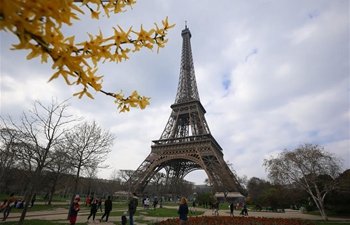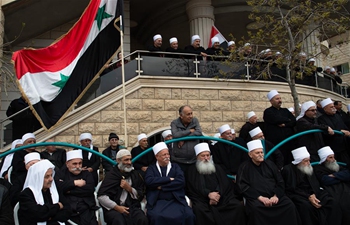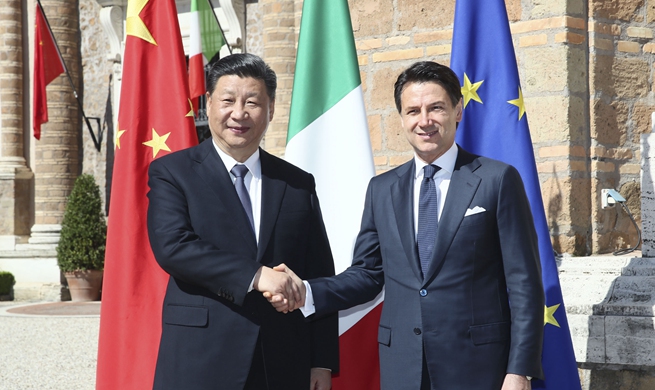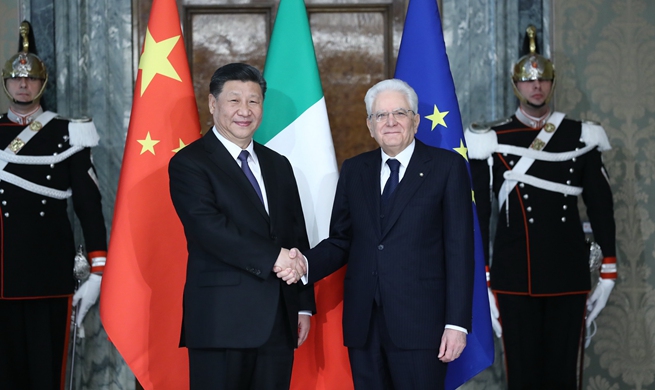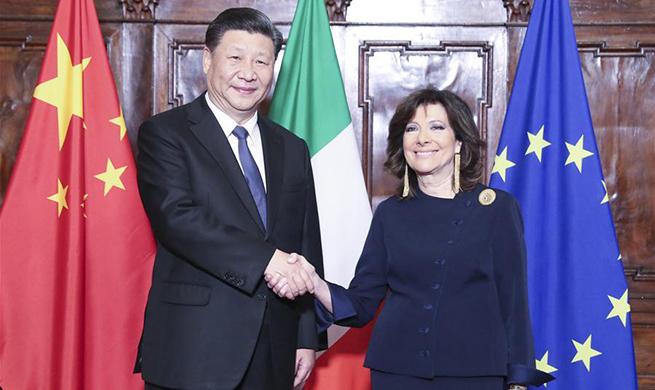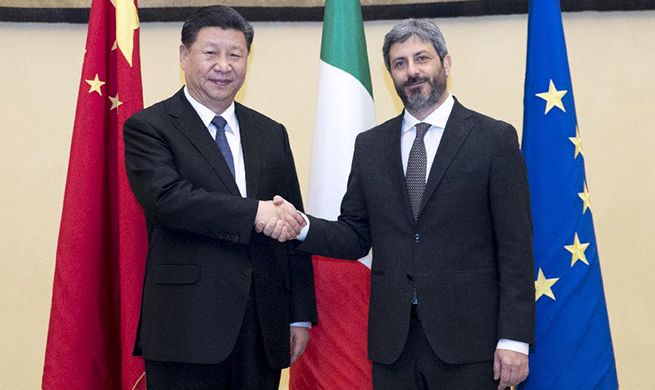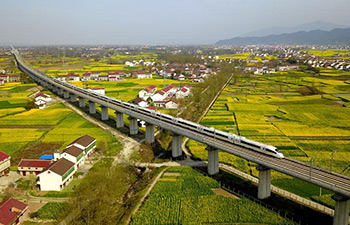KHARTOUM, March 24 (Xinhua) -- The concurrent visits by a U.S. congress and Russian delegation to Sudan last week raised questions on whether there is a Russian-U.S. division on prospects of the African country.
A U.S. Congress delegation, headed by Gus M. Bilirakis, leader of the Freedoms Bloc at the U.S. Congress, visited Khartoum last week and held meetings with Sudanese officials over topics including bilateral relations and public freedom.
Meanwhile, Mikhail Bogdanov, Russia's Deputy Foreign Minister and Special Presidential Representative for the Middle East and Africa, also visited Khartoum and held talks with Sudanese officials over enhancing economic and trade ties.
Hassan al-Saouri, a political science professor at Al Neelain University, said Sudan is currently moving seriously toward Russia as it has started losing hope in the U.S. stance.
The U.S. strategy toward Sudan is to see Sudan going weak, disturbed and subjected to the American control, al-Saouri told Xinhua.
"America has realized that Sudan would not subjugate and that Sudan, with its material and human potentialities as well as its distinguished location, can become a power in north, east and central Africa. Therefore, the U.S. will not allow stability in Sudan," he explained.
In contrast, Russia has real interests in Sudan, the Sudanese expert said.
"Russia, when it was the Soviet Union, began agricultural manufacturing in Sudan in 1962 through the dates canning factory in Karima, onion canning factory in Aroma, the vegetables canning factory in Wau and the diary factory in Babanusa," he noted.
"It is possible for Russia to have military bases in Sudan where presence of economic interests need to be protected via military presence," al-Saouri said.
"Russia presently needs to put a foothold at the Red Sea which links Asia with Africa and Europe besides the fact that it is a route for transporting oil and gas," he added.
Meanwhile, Al-Saouri did not express any optimism over the success of the dialogue between Sudan and the United States.
"I'm not optimistic with regard to possibility of lifting Sudan from the list of countries sponsoring terrorism because America is not serious in the dialogue with Sudan as it adopts the principle of maneuvering," al-Saouri said.
Mohamed Al-Nayer, a lecturer of economics at the Africa International University, said "Russia has a strong presence in Sudan through investment in the mining field."
"It is of Russia's interest to move toward Africa through Sudan's gate, where the Russian-African summit in October will be the beginning of this trend," noted Al-Nayer.
He pointed out that the commercial exchange between Russia and Sudan has increased in the last years.
With regard to the swinging relations between Sudan and the United States, Al-Nayer said "there are no economic ties between the two sides" whether the U.S. economic sanctions on Sudan are lifted or not.
"Sudan has not benefited from the lifting of the U.S. sanctions and the Sudanese banks could not deal with the international banks under the pretext that Sudan is still on the U.S. list of countries that sponsor terrorism," he said.
The size of the commercial exchange between Sudan and the United States is very weak and has not exceeded 30 million U.S dollars, Al-Nayer added.
In the past two years, the relations between Khartoum and Washington have relatively improved, as the U.S. government lifted economic sanctions on Sudan on Oct. 6, 2017.
However, Washington is still listing Sudan as one of the countries sponsoring terrorism.
